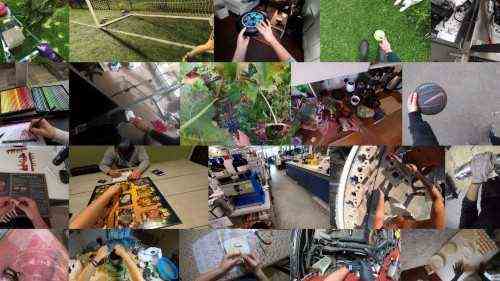Facebook again. According to the technology press and related blogs, the company wanted “machines to see the world through our eyes”. Brrr. On closer inspection, there is nothing more than basic research into visual computer systems behind the horror teasers. So far, AIs that are supposed to interpret images have opened up the world through the massive consumption of annotated and tagged photos. You see the world as a spectator, not as an actor. It’s just stupid that you don’t go through the world like that. Neither people nor more or less smart machines have the perspective of the outsider, instead they are in the middle of it, with all the impressions that are pouring down on them.
Instead of the previous method, Facebook now wants to use a new type of data set that consists of more than 2000 hours of moving images. A few hundred volunteers from nine countries filmed doing their day’s work. The videos were recorded with standard action cameras, which are also used by skiers and mountain bikers on their helmets. Instead of neatly presented situations, the software now has to work with motion blur and limited viewing angles. Ego4D has been called the data collection. Sounds like an action game, but, as project manager Kristen Grauman explains, it has solid goals: “The Ego4D tasks revolve around understanding how a person interacts with their environment, objects and other people.”
There is ample potential for misuse of this technology
The technology could be used, for example, in augmented reality glasses, such as the one that Facebook just happened to introduce last month. In the meantime, the company’s own brand seems to have such negative connotations that it has decided to prominently mention the name of the eyewear manufacturer when marketing it. Of course, that doesn’t change the underlying business model. The practice of analyzing almost all user data for advertising relevance would thus be transferred from being online to the offline world.
On Facebook, all kinds of applications for Ego4D have already been devised. For example, there is an “episodic memory” that could help to find lost things. An “audiovisual diary” would also be conceivable, so you could record conversations.
On the one hand, you would let Facebook save every waking moment – but at least you would never misplace your keys again. Sounds like a fair deal? There is therefore ample potential to misuse this technology or at least use it for bad purposes. After all, we’re talking about Facebook here.

